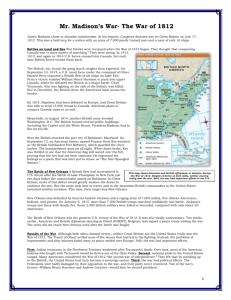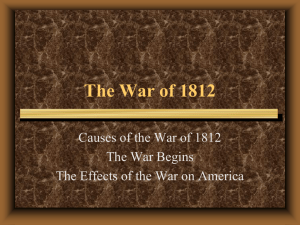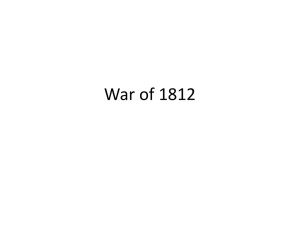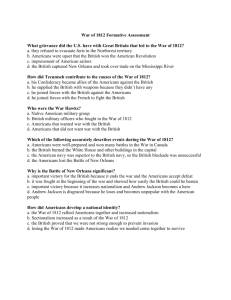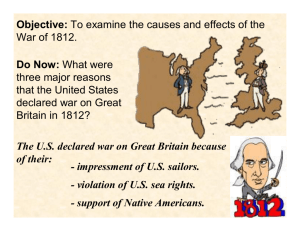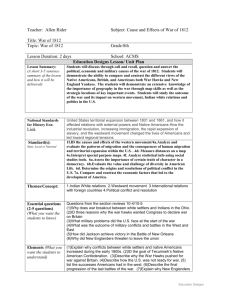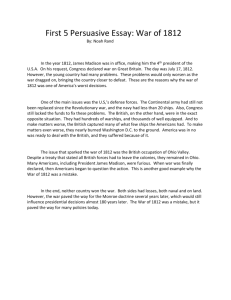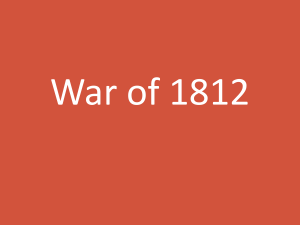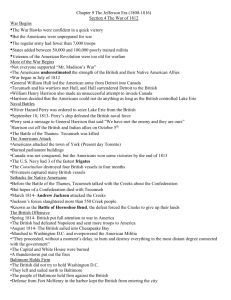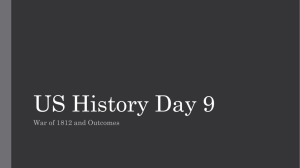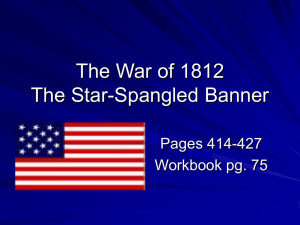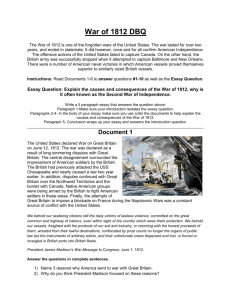Causes for the War of 1812 - Greensboro Academy 8th Grade History
advertisement
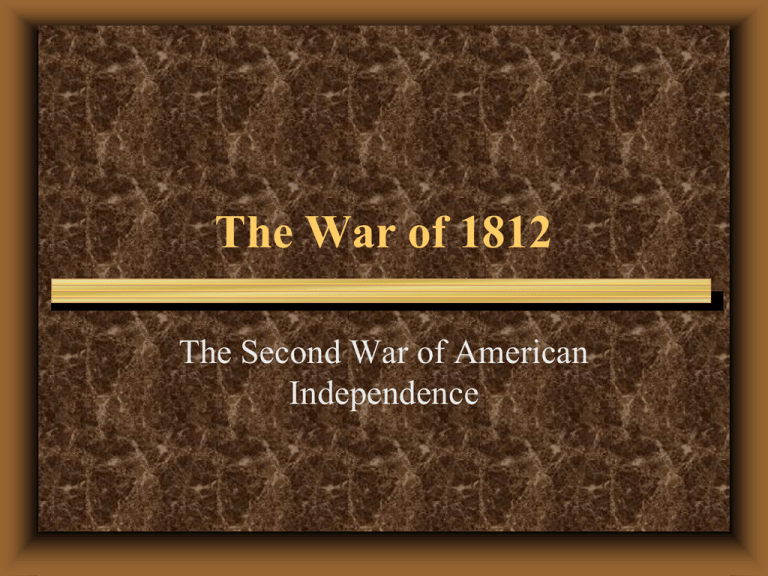
The War of 1812 The Second War of American Independence The Presidency of James Madison • • • • Elected in 1808 Virginian lawyer and student of history Wrote a large part of the U.S. Constitution Stood barely 5’4” and 120 pounds but, an intellectual ahead of his time Causes for the War of 1812 • • The British Navy is taking American sailors from American ships to sail on British ships. This is called impressment. British sailors leave British ships to sail on American ships because they are treated better and get paid very well Causes for the War of 1812 • The British army is supporting Native American resistance to Anglo expansion on their land. Causes for the War of 1812 • • • The United States has a desire to expand into more territory like British Canada The real cause for this land grab is because of a poor transportation system and effects from the Embargo Act Americans believe that seizing more land will end the depression Causes for the War of 1812 • • The United States wants to prove to Britain that the victory of the American Revolution was not luck. Americans demand respect from the world. Tecumseh and Indian Nationalism • • • Tecumseh, a Shawnee chief attempts to unify Indian tribes that have been removed from the Ohio River Valley His brother, the Prophet preached that Indians should reject White ways and embrace their heritage The brothers have a large following but their hopes are destroyed at the battle of fallen Timbers American Shortcomings in The War of 1812 • • • • The military is poorly trained and led The U.S. navy is no match for the British navy American forces attempt to seize Canada but are poorly led and militia forces Americans are forced to fight a defensive war against an invading professional army The Battle of Thames • • October 5, 1813, British and Indian forces are defeated by American forces in Canada Tecumseh’s death ends Indian resistance in the Ohio River Valley The Death of Tecumseh The British Burn the Capital • • • August 1814, the British Army invades the United States and marches on Washington D.C. After a brief fight the city surrenders and nearly all government buildings are razed by fire Madison rallies the American public after this defeat “The Star Spangled Banner” • • • Francis Scott Key, a prisoner on a British barge witnessed the British bombardment of Fort McHenry, near Baltimore for 12 hours In the morning he observed that the American flag still flew over the fort and writes a poem called “The Defence of Ft McHenry” it eventually becomes a song “The Star Spangled Banner” Americans rally to the war effort after the capital is burnt down “The Star Spangled Banner” Things that make you go hmmm • • The Treaty of Ghent on December 24, 1814 ends the War of 1812. The war is considered Staus quo ante bellum The Hartford Convention, several New England states fear that the war is lost and actually talk about becoming another country The Battle of New Orleans • • The American forces are a multicultural motely band of experienced soldiers and warriors The British, a trained army are virtually mauled by American forces hiding behind earthworks and cannons The Battle of New Orleans • • American forces at New Orleans are led by General Andrew Jackson whose army inflicts great casualties on the British army Andrew Jackson will be associated with winning the war. People assume that this victory is responsible for ending the war. A map of the Battle of New Orleans The Battle of New Orleans The Impact of the War of 1812 1. 2. 3. A sense of nationalism sweeps America. Nationalism is a belief and sense of pride in one’s country based on it’s achievements. The nation will embark on foreign trade and begin to build a transportation system in the United States. Native American resistance will be removed from the Ohio River Valley permanently opening the Midwest for expansion.
